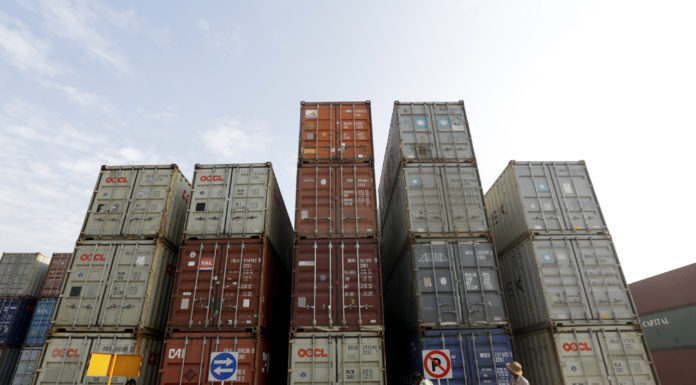… scarcity of foreign exchange threatens acquisition of ships spare parts
Indigenous shipping business in Nigeria is currently facing severe economic hardship due to low patronage and lack of jobs, resulting to high availability of idle vessels.
Ship owners, who took turns to examine the nation’s shipping business in the past 10 months, blamed the development on economic downturn that forces international oil companies (IOCs) operating in Nigeria’s upstream sector to cut demand for service and supply vessels during offshore exploration and production of crude oil.
According to them, over 40 percent of oil tankers, passenger carriers and service supply vessels owned by Nigerians are no longer engaged to lift crude oil, lift workers of oil majors, and supply goods and services to IOCs at their various offshore operational bases.
Greg Ogbeifun, president, Ship Owners Association of Nigeria (SOAN), who said that many IOCs had reduced the number of vessels being used in the upstream sector, said about 40 percent of vessels owned by indigenous ship owners had lost their contracts while the remaining 60 percent struggle over high operational cost, “as the rate of inflation eats into companies bottom lines.”
Ogbeifun, who doubles as the chairman of Starzs Investments Company Limited, said the current economic situation had reduced the rate of vessels chartered by oil majors to about 25 percent.
Adewale Ishola, former president, Association of Master Mariners, said the scarcity of foreign exchange was also affecting the acquisition of ship spare parts needed for maintenance of vessels due for repair. This, according to Ishola, has also pushed many seafarers whose employers could not pay their salaries, to the labour market.
“Nigeria does not manufacture ships and ship spare parts are also imported, but the difficulty in accessing foreign exchange to import these spare parts have kept many vessels owned by indigenous ship operators out of business and they are losing money due to this,” Ishola said.
To grow the nation’s shipping business valued at N2 trillion annually, Ishola pointed out the need for government to change the present crude oil trading policy of Free-on-Board (FoB) to Cost, Insurance and Freight (CIF), as obtainable in all the oil producing countries in the world.
“CIF would create more jobs for Nigerian ships because Nigerians would be the ones to bring ships that would carry the nation’s crude oil for export to the destination ports. Alarmingly, Nigeria is the only country among the OPEC members that does not lift its crude oil and we are losing freight, business and money by doing so. CIS policy allows the seller of the crude oil to be the one to carry oil to its destination while FoB allows the buyer to bring ship that would carry the crude,” he said.
Olu Akinsoji, a ship owner, who affirmed that economic recession was affecting importation of spare parts because the parts used for maintenance of ships were not manufactured in-country, saying the operational cost of shipping was also affected by increased price of fuelling vessels.
“Shipping is an international business that requires foreign currency for buying of ships and payment if insurance. And Nigerian government needs to make shipping attractive and competitive with what is happening in other parts of the world. There is need to give concession by reducing the tariff on imported spare parts for Cabotage vessels involved in carriage of locally generated cargo,” Akinsoji said.
